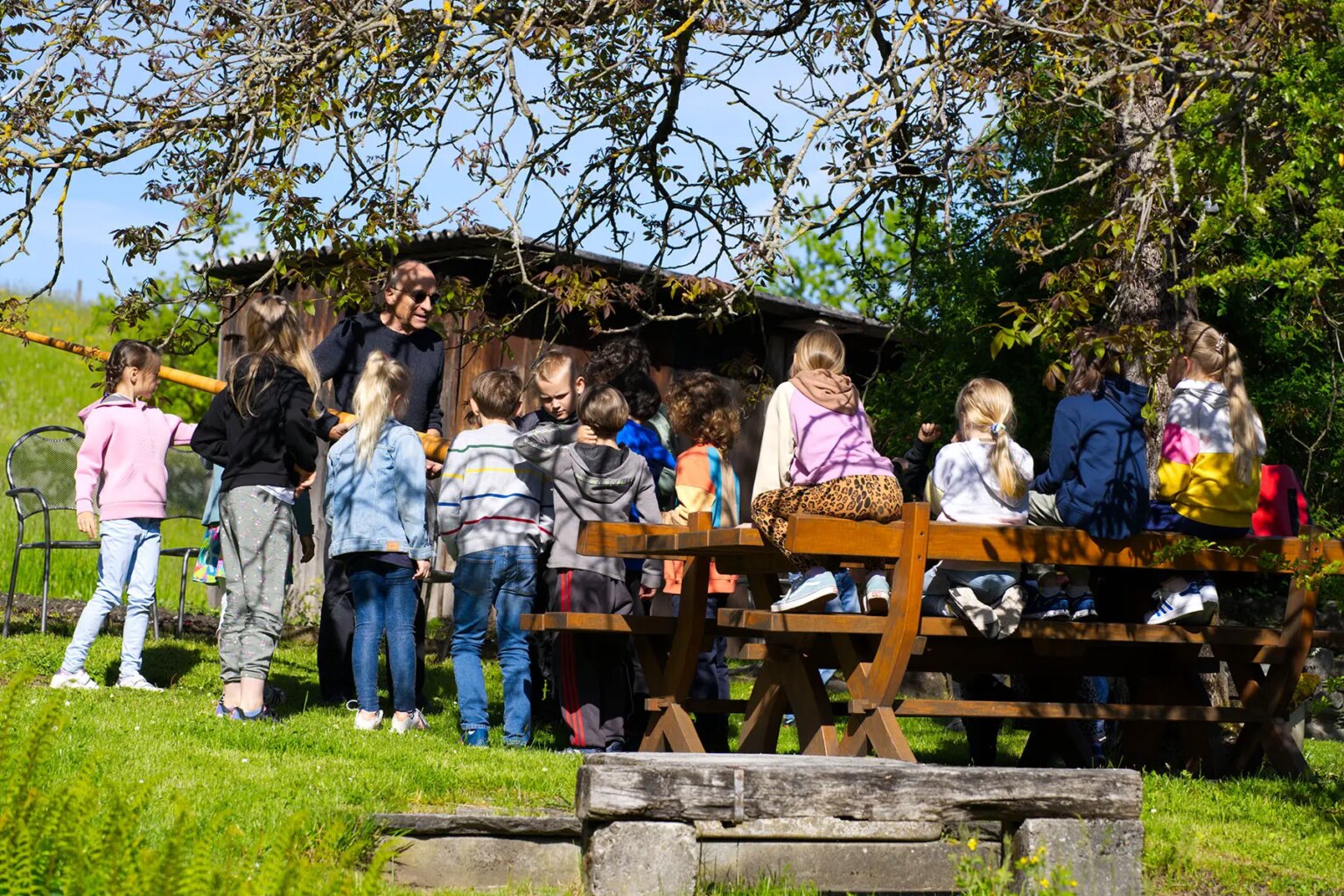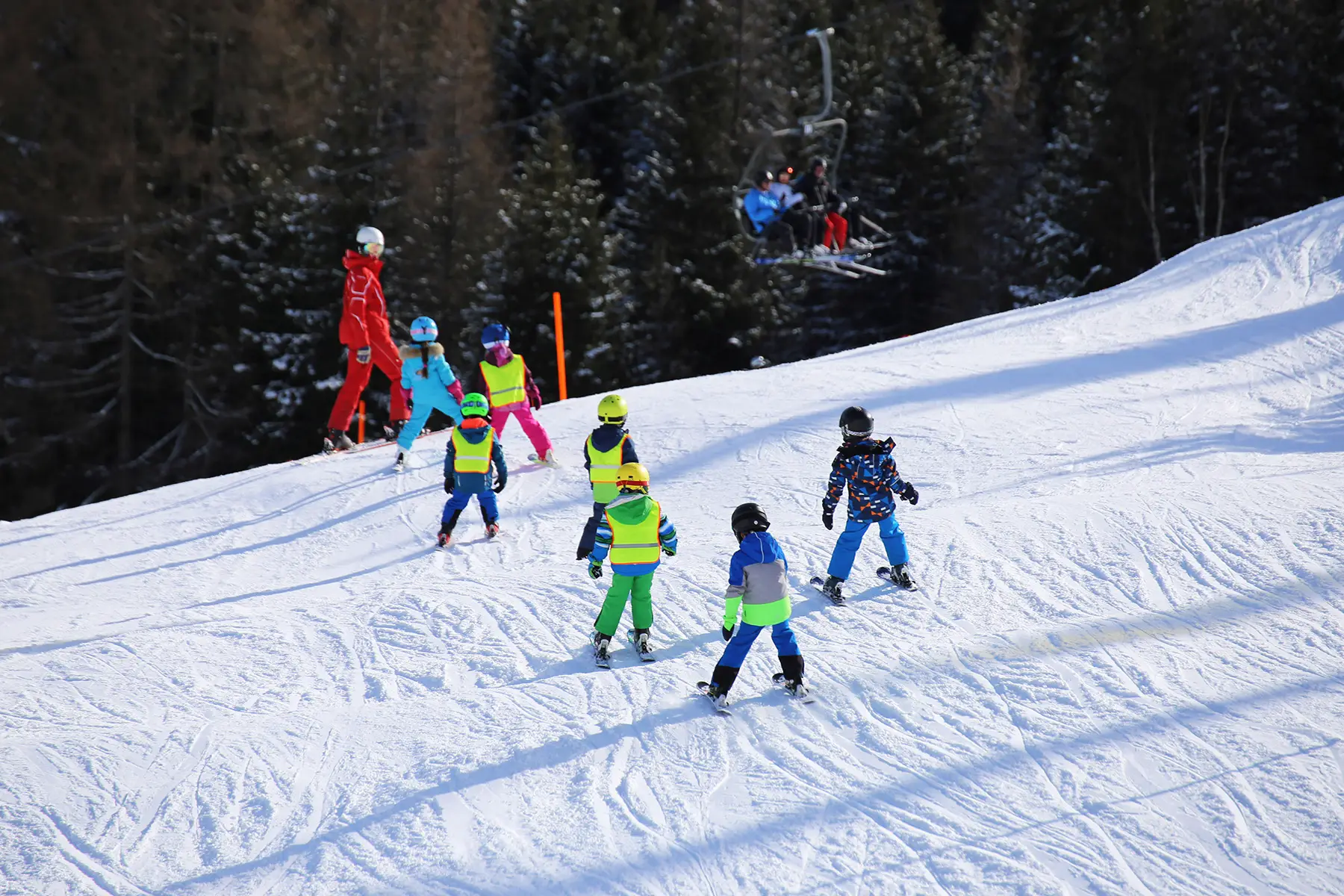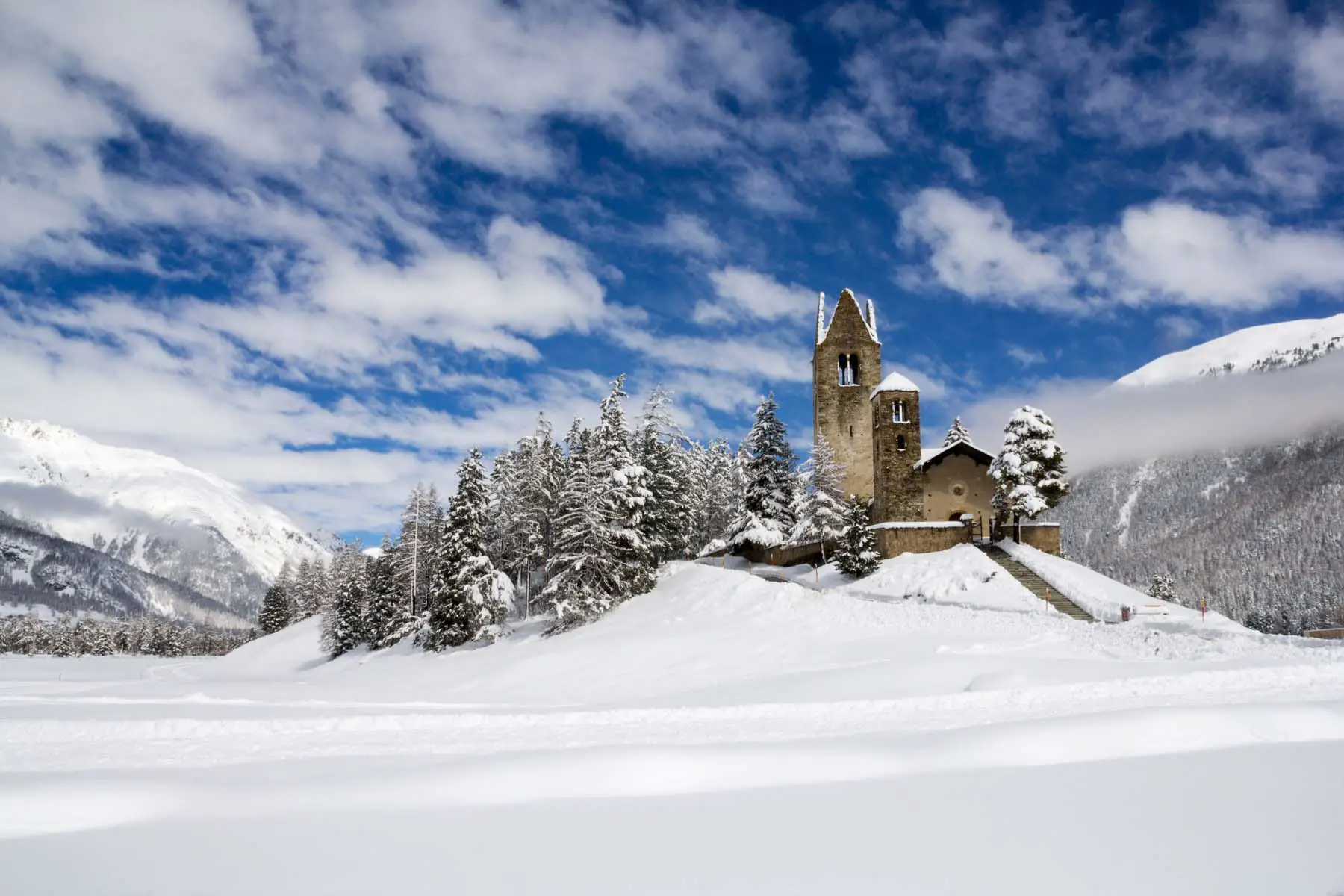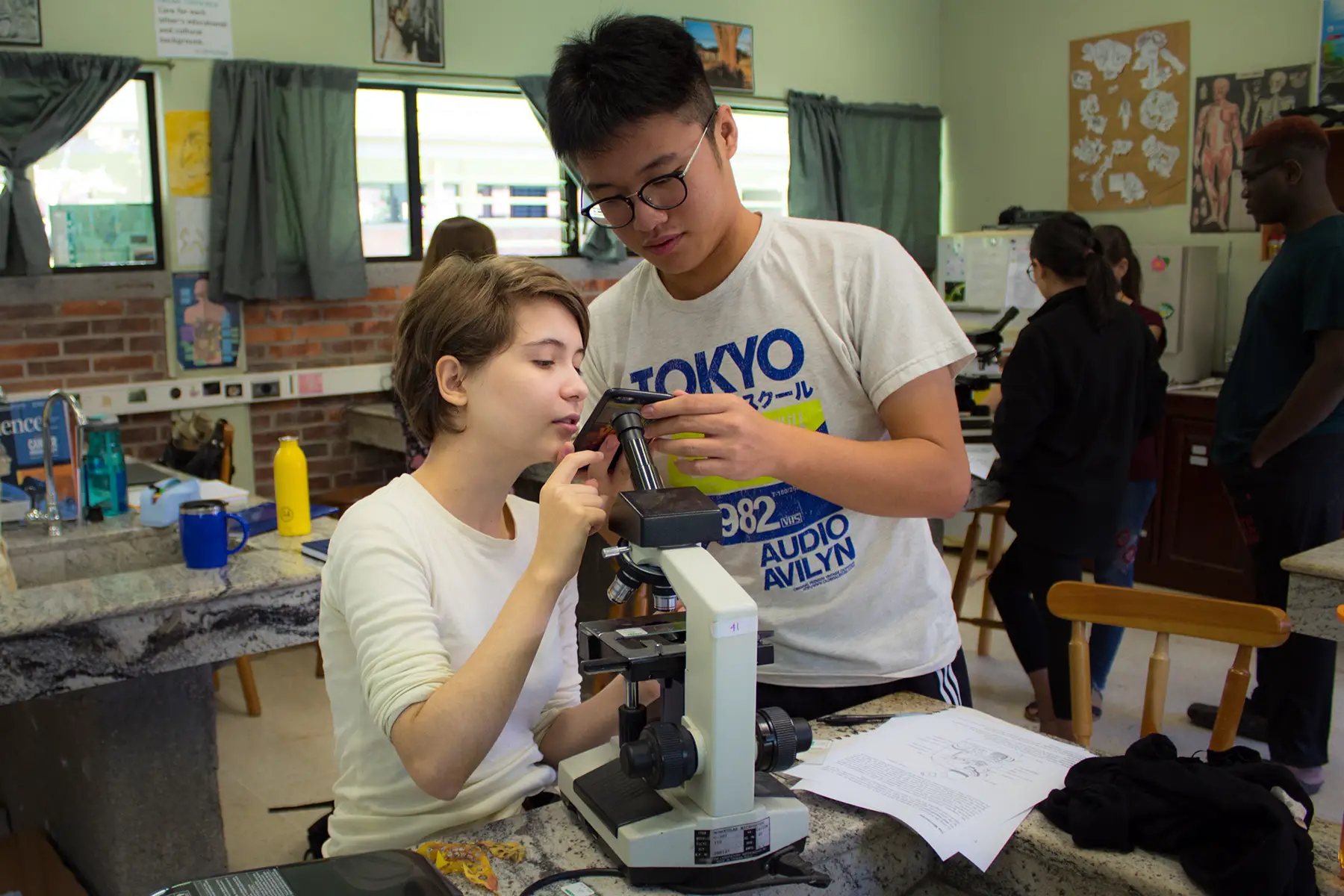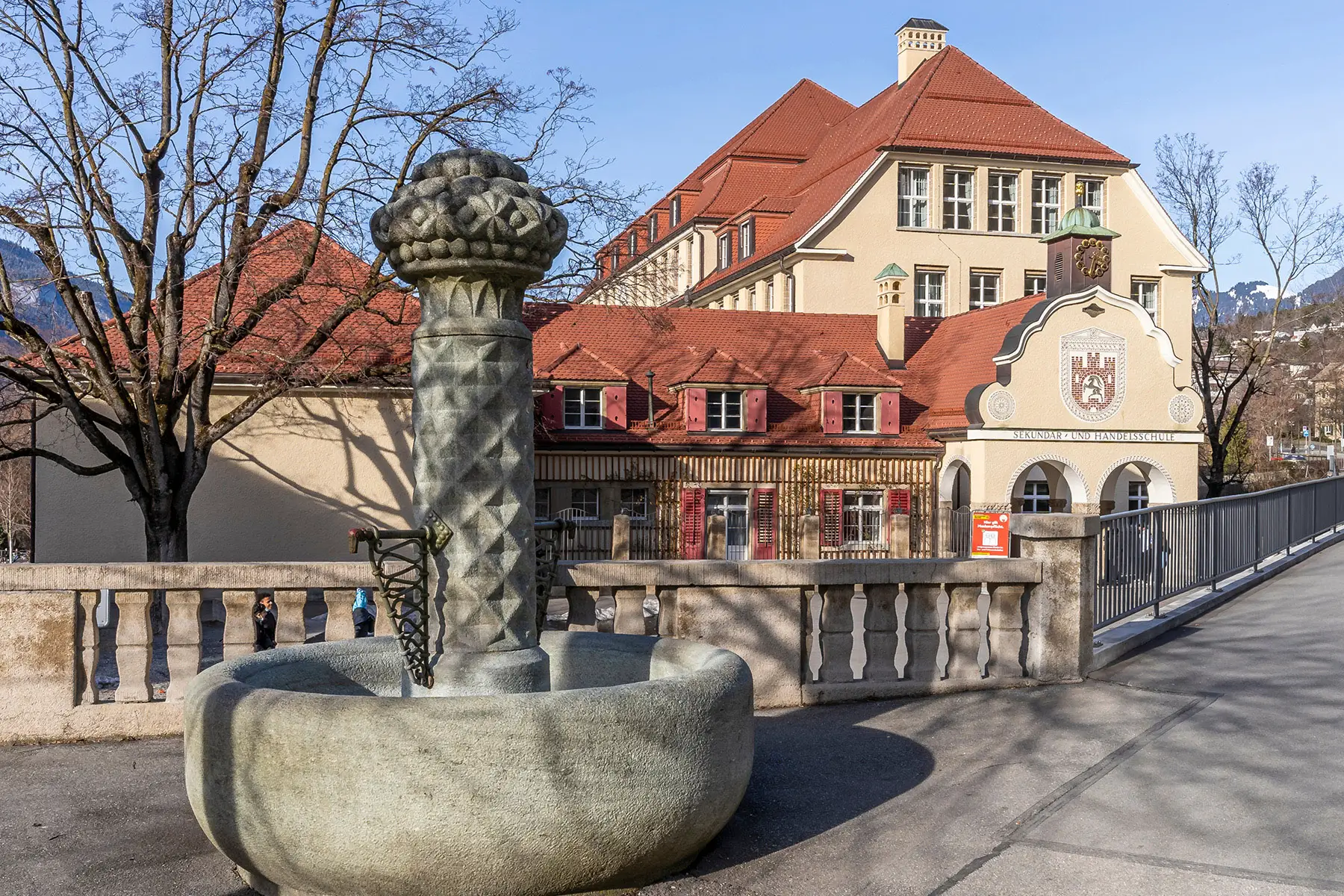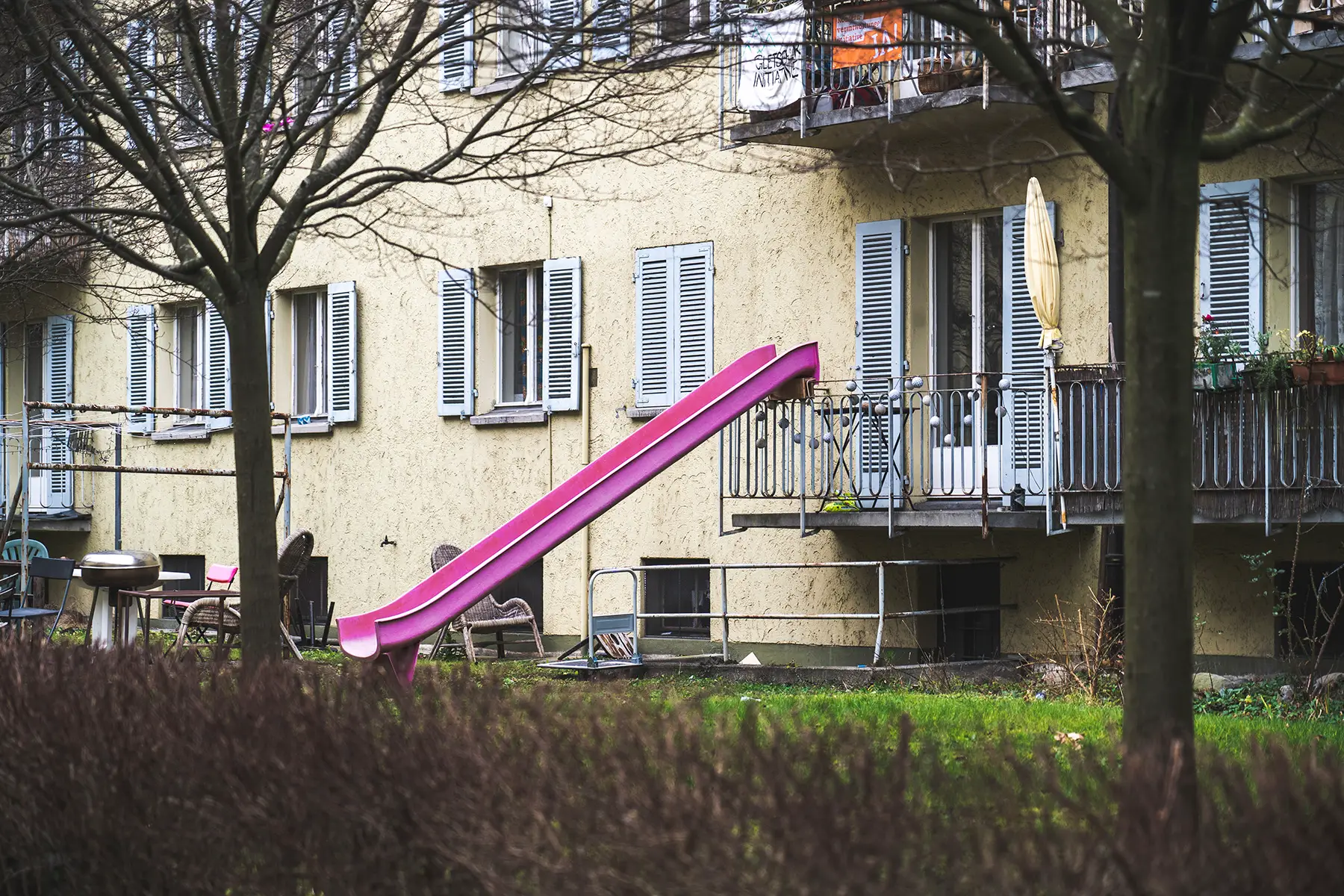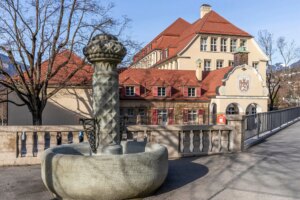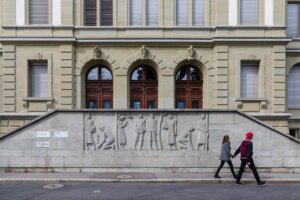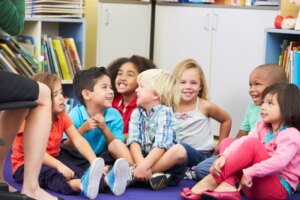If you are moving to Switzerland with your family, then you will be happy to know that there are an array of schools catering to international families. Although you can opt to enroll your children in Switzerland’s public education system, many expats opt for private or international schools. Nevertheless, the quality of education in Switzerland is high and offers a multicultural, multilingual experience.
To help you navigate the education system in Switzerland, this helpful guide provides the following information:
- Education in Switzerland
- Preschool education in Switzerland
- Primary education in Switzerland
- Secondary education in Switzerland
- The International Baccalaureate (IB) in Switzerland
- Graduating in Switzerland
- Financial aid and scholarships
- Educational support for expat students in Switzerland
- Support for children with special educational needs in Switzerland
- Changing schools in Switzerland
- Chances for parental involvement in schooling in Switzerland
- Homeschooling in Switzerland
- Useful resources
International School Lausanne
As an IB World School, International School Lausanne (ISL) challenges students to acquire skills and attitudes that meet the growing demands of a globalized world. ISL offers Primary Years, Middle Years, and Diploma Programs for children 3–18. Visit the ISL website today and get your child a top Swiss education.
Education in Switzerland
Fortunately for expats, the Swiss education system is one of the best in the world. In fact, the country ranks ninth out of 65 countries in the OECD/PISA 2012 survey of educational standards among 15-year-olds. As such, schools in Switzerland offer high-quality education.
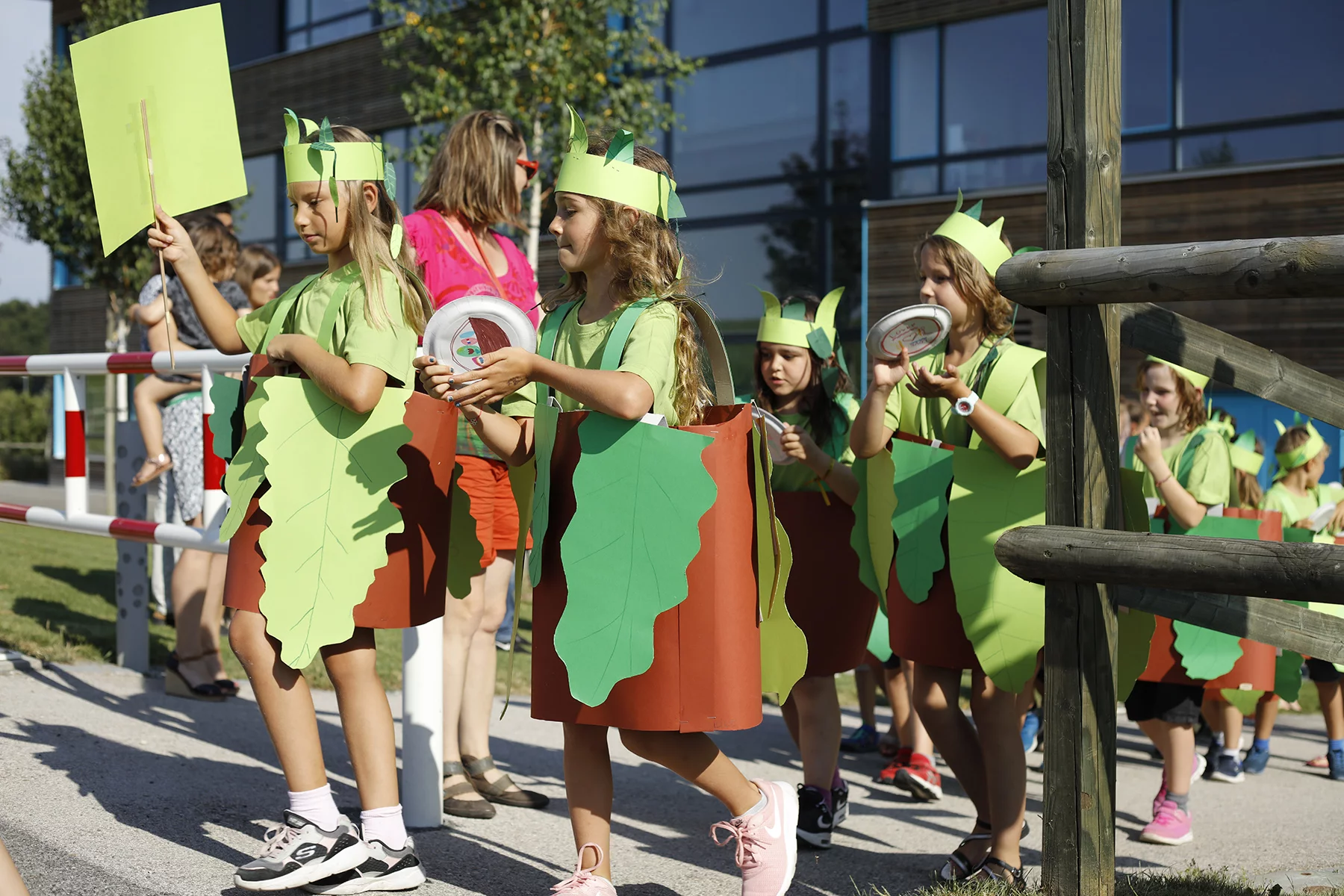
The State Secretariat for Education, Research, and Innovation (SERI) is the federal body that oversees education in Switzerland. However, each of the 26 cantons has primary responsibility for its education. As such, each canton has its own education department, school calendar, education structure, methods of teaching, and curricula.
That said, there are agreements in place to coordinate the latter across the country. Most Swiss children begin their formal education around the age of four when they enter kindergarten. However, education is only compulsory up to the age of 15. After this, students can decide whether they want to continue their schooling.
During the compulsory stage of public education, students begin in primary school, then progress to lower secondary school (essentially, middle school). After this, they can opt to continue their studies at an upper secondary school. However, there are many types of upper secondary institutions available, including technical colleges and baccalaureate schools.
Notably, many expat children attend private schools in Switzerland. While they also have to attend school up to the age of 15, most expat students continue their high school education up to the age of 18. As such, they graduate with a high-school qualification, such as the International Baccalaureate Diploma, A-Levels, or French Baccalaureate.
Preschool education in Switzerland
Although preschool is not compulsory in the Swiss education system, many children still attend some sort of institution before starting primary school. In fact, some cantons encourage attending kindergarten before going to primary school.
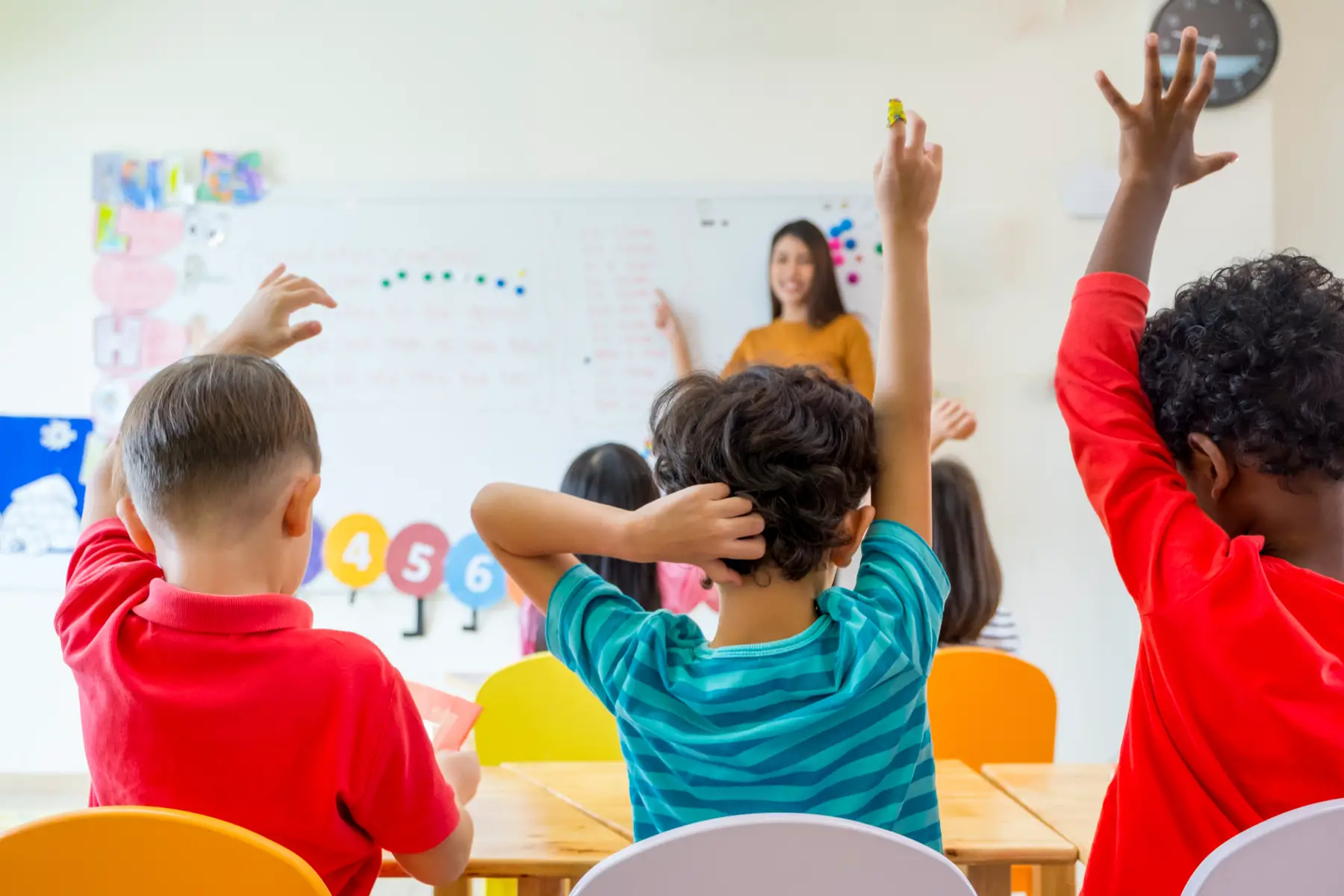
This is because this can stimulate the development and social skills of children through play-based learning that includes music, crafts, and games. Furthermore, this can be a good way for expat children to learn the local languages, giving them the option of attending public school.
Most Swiss children start kindergarten (or nursery) around the age of four. However, for younger children, a crèche may be preferable. However, this is more of a daycare than an educational institution. Generally speaking, parents will have to apply directly to the kindergarten or crèche for admission.
There are both public and private kindergartens available in Switzerland. As with the rest of the Swiss education system, public kindergartens are free. Conversely, you will have to pay to place your child in a private kindergarten. This could be around CHF12,000 per semester.
Primary education in Switzerland
Around the age of six, Swiss children go to primary school. This is compulsory under federal law and lasts around six years.
Public primary schools in Switzerland
Depending on the canton, primary school lasts between four and six years. At this level, children are not divided into achievement groups. Because cantons oversee their own education system, the curricula, holidays, and minutiae of education may differ. However, in general, children learn in the language of the region (German, French, Italian, or Romansh). As such, subjects include the first language, a second national language, and English. Additionally, students learn mathematics, natural sciences, social sciences, humanities (e.g., geography, history, ethics, religion), music, art, physical education, and health.
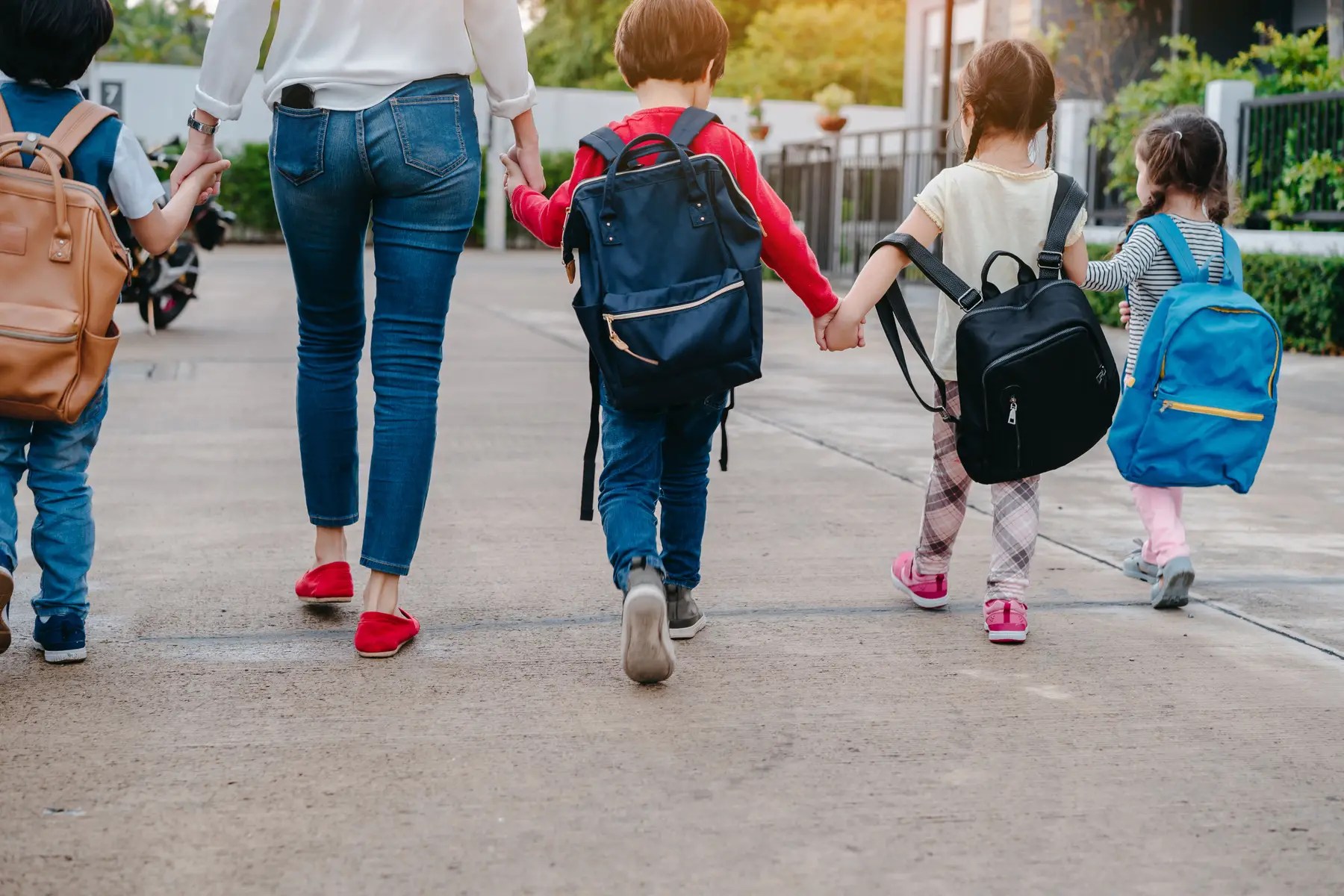
Like the curricula, pupil assessment varies from canton to canton throughout Switzerland, but pupils receive a school report twice a year. There may also be end-of-year tests. These assessments decide whether a student goes on to the next grade, receives extra support, or repeats a year.
In general, the quality of education in Switzerland is very high, and this includes public primary schools. Because the government invests heavily in its public education sector, these schools are also free to attend.
Private primary schools in Switzerland
Switzerland boasts many private and schools, even at the primary level. These schools often provide education from kindergarten through to high school, and are, therefore, a good option for expat parents who want a seamless education for their children.
There are three different types of private primary school in Switzerland, which include:
- International schools
- Religious schools
- Montessori schools
International schools in Switzerland
International schools are a popular choice among expats in Switzerland as they often provide education from kindergarten through to high school. They are a good option for expat students who will be living in Switzerland for a while or may have to move between international schools in different countries. Usually, these schools follow a particular country’s educational philosophy and curricula.
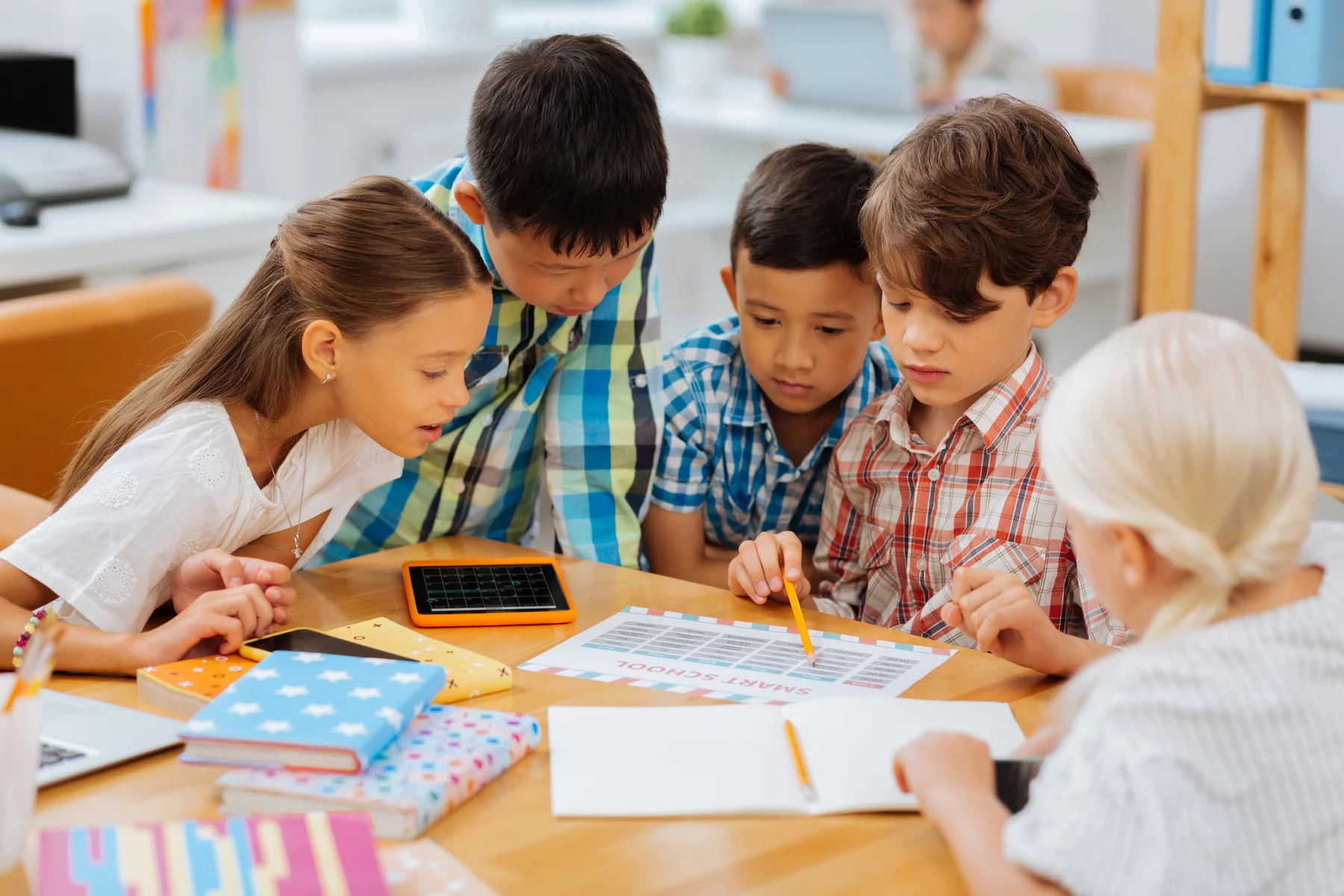
For example, they might apply the American, British, French, or Japanese education system. As a result, they can offer expat students a good grounding in the education of their home country, making it easier for them to return there later. Furthermore, most international schools offer day classes and boarding.
One of the top Swiss international schools is International School Lausanne, which teaches students age 3–18. They offer the IB Primary Years, Middle Years, and Diploma Programs.
Inter-Community School Zurich
Looking for an international school in Zurich? Why not consider the Inter-Community School Zurich (ICS)? Established as Zurich's first international school, ICS offers students from 18 months to 18 years an encouraging, globally-minded English-speaking education. If you want the best start for your children in Zurich, enrol them at ICS.
Religious schools in Switzerland
Switzerland is home to numerous religious schools. However, most of them are Catholic schools. Therefore, students are given a good spiritual education in the Catholic religion, alongside learning standard subjects such as languages, maths, and sciences.
Montessori schools in Switzerland
This is a popular choice for students at the primary level, both in Switzerland and around the world. This is because the Montessori philosophy encourages a high level of creativity and independence in students.
Secondary education in Switzerland
Secondary schools in Switzerland are split into two sections, lower and upper. Because they cater to students between the ages of 11 and 15, lower secondary education is compulsory. After this, however, students can decide whether they want to continue their studies at an upper-secondary educational institution.
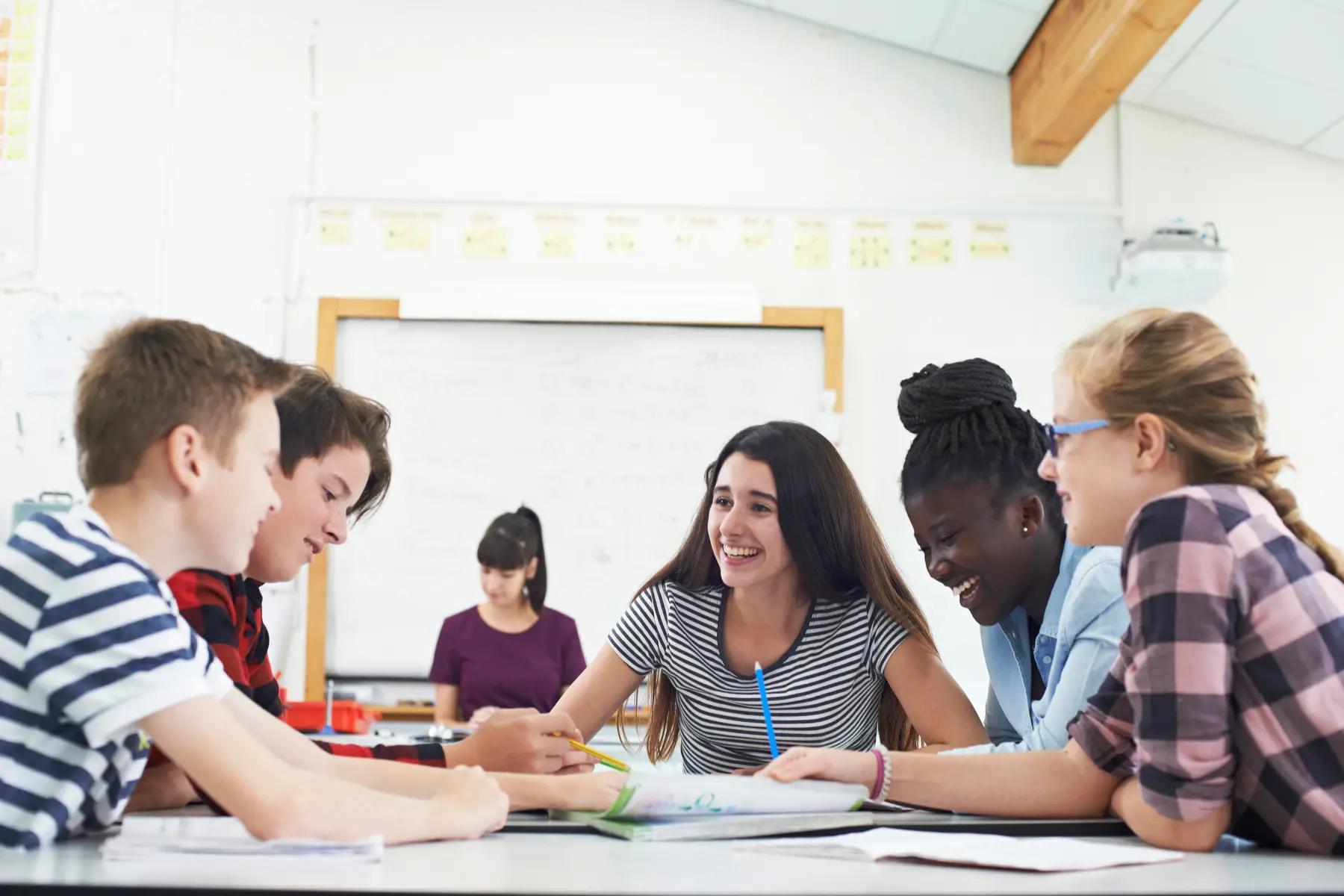
Public lower secondary education in Switzerland
Students usually begin lower secondary school at the age of 11 or 12. Generally speaking, they will attend a middle school, which is called a Gymnasium or Kantonsschule. Lower secondary education usually lasts for three years, however, in Italian-speaking Ticino, it lasts for four years.
The lower secondary curriculum usually includes the local canton language, a second national language, and sometimes an optional third, and English. In addition, students will take classes in maths, the sciences, geography, history, civic education, music, art, physical education, home economics, and more.
In most cantons, students receive a progress report twice a year with grades. There may also be end-of-year tests, depending on the canton. In addition, there is usually a teacher-parent meeting to discuss the student’s performance. This is because students must achieve a certain level of academic progress in order to progress to the next year of school or move on to the upper secondary level.
Once a student finishes their lower secondary education – around the age of 15 – they can choose not to continue their education. At this point, however, there is no national exam or graduation diploma. That said, some cantons may choose to hold their own final exams and issue their own certificates.
Public upper secondary education in Switzerland
After nine years of compulsory education, adolescents in Switzerland can choose to continue to the upper secondary level. Although this is optional, more than 90% of Swiss students choose to do this. In Switzerland, upper secondary education is split into general education and vocational schools, therefore, students have to decide which track to take. In addition, both the federal government and the cantons oversee upper secondary schools. As such, there are variations in their organization and curricula. Nevertheless, cantonal qualifications are valid across Switzerland.
There are three types of upper secondary school in Switzerland, which include:
- Vocational education and training (VET) schools
- Baccalaureate schools
- Upper secondary specialized schools
Vocational education and training (VET) schools in Switzerland
Most students in Switzerland choose vocational education and training (VET) programs after completing their lower secondary education. Basic vocational education lasts between two and four years and provides practical and technical training. These dual-track programs combine classroom lessons at a VET school with an apprenticeship at a training company. As such, students can gain theoretical and practical knowledge.
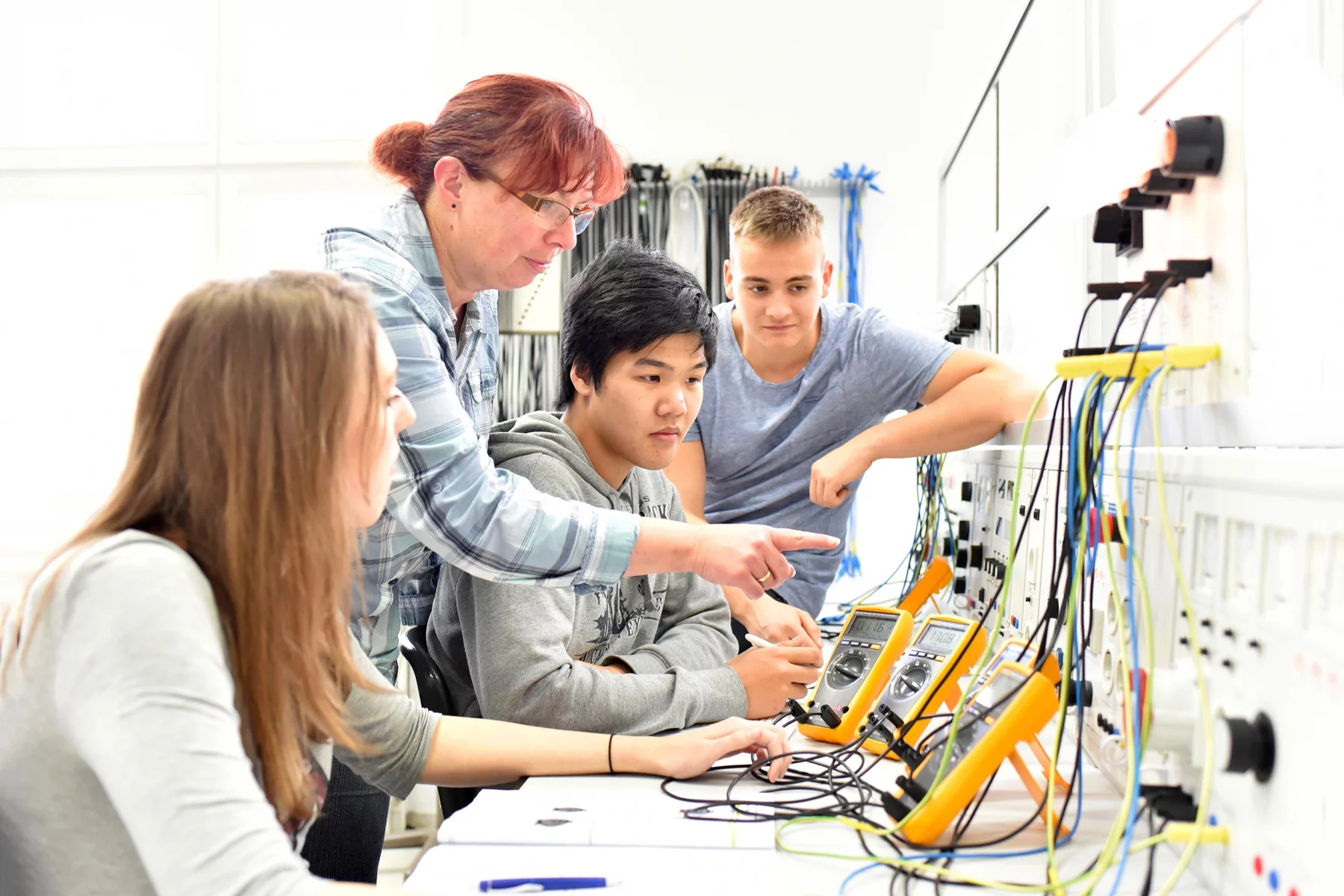
There are VET programs for around 230 different professions in Switzerland. Therefore, students can choose from a wide array of specialties and career paths. VET programs can lead to a Federal VET certificate, a Federal VET diploma, or the Federal vocational baccalaureate (Berufsmaturität / maturité professionelle) which allows admission to universities of applied science.
Baccalaureate schools in Switzerland
About a third of Swiss students go on to baccalaureate schools, which provide a general education in preparation for university. Notably, this is different from the International Baccalaureate Diploma Program, which is only available at private schools.
Pupils usually enroll at baccalaureate schools in the last year of lower secondary education. Baccalaureate programs usually last for four years, however, they can take three years in some cantons and six years in others.
A baccalaureate program consists of core subjects, a main specialization, a secondary specialization, and a baccalaureate essay. Core subjects are the first national language, a second national language, and a third language (a third national language, English, Latin, or Greek), mathematics, biology, chemistry, physics, history, geography, and visual arts or music. All students take an introductory course in economics and law, while philosophy is optional.
Students receive a grade at the end of term and/or year, and their performance determines whether or not they progress to the next year. At the end of the baccalaureate program, students have exams in at least five subjects. They also have to present a baccalaureate essay.
Those who pass earn the baccalaureate certificate (Matura / Maturité). They can then enroll at cantonal universities, institutes of technology, and teacher training universities.
Upper secondary specialized schools in Switzerland
Around 5% of students go on to upper secondary specialized schools in Switzerland. They provide a general education alongside preparation for professional education and training (PET) in specific occupations. These might include careers in healthcare, social work, and education at PET colleges and universities of applied sciences. There are upper secondary specialized schools in 22 cantons, and these are both publicly and privately run. Admission criteria vary but may include an entrance exam or interview.
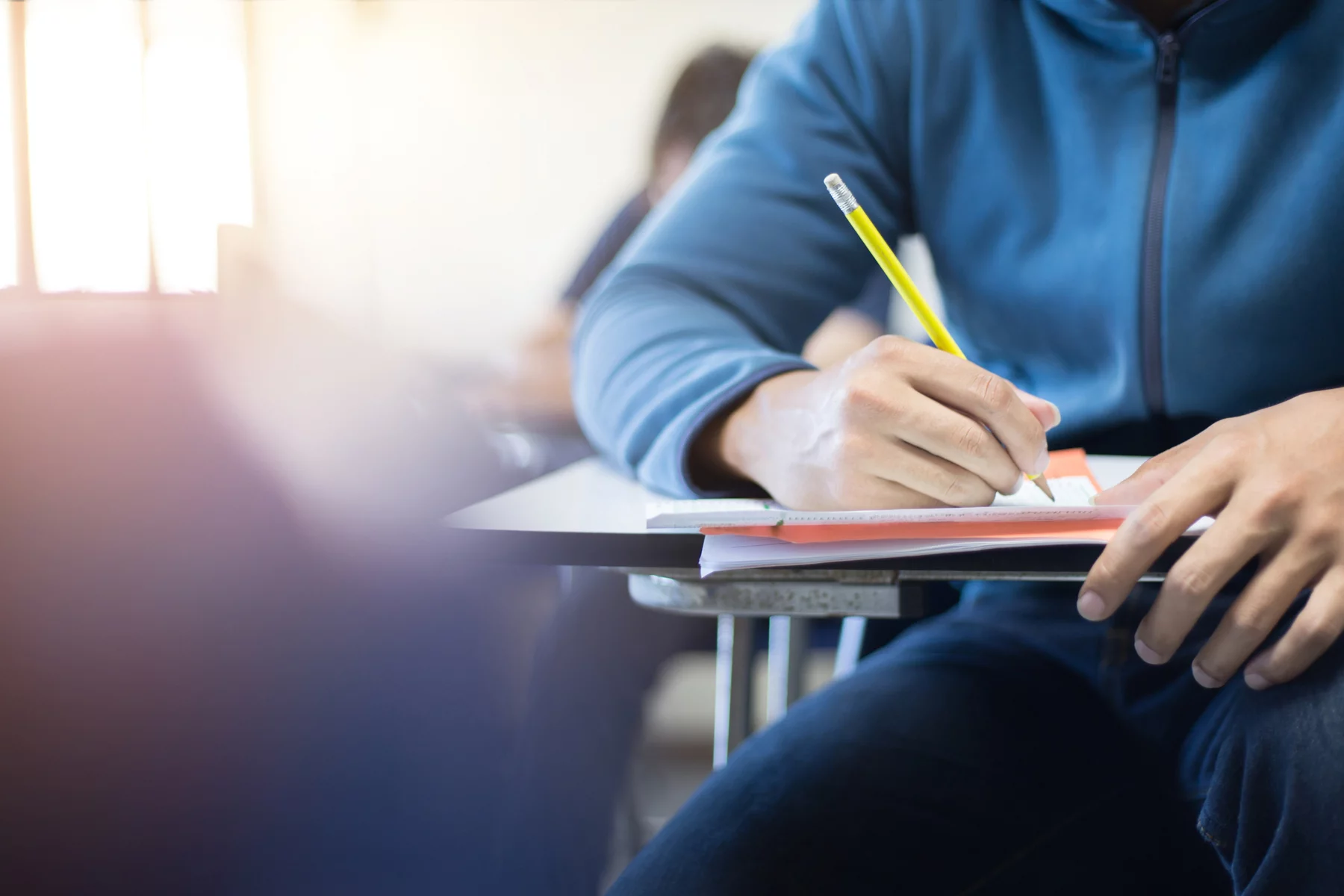
Students study core subjects and additional subjects related to the specific occupation. Later on, they receive a grade at the end of term and/or year and good progress allows them to progress to the next year. Similar to the other types of upper secondary schools in Switzerland, these three-year specialized school programs end with a final exam in at least six subjects. Successful candidates earn the upper-secondary specialized school certificate and can go on to study at PET colleges.
Students who take the additional one-year specialized baccalaureate course (which is not available in all cantons) usually have to complete traineeships or practical experience in their particular field as well as coursework. Successful candidates earn the specialized baccalaureate (Fachmaturität / maturité spécialisée). This grants them admission to universities of applied science and preschool and primary teacher courses at teacher training universities.
Private secondary schools in Switzerland
As with primary schools, there are many private secondary schools in Switzerland. In fact, many of these are extensions of their primary schools, allowing a seamless transition into secondary education. The biggest advantage of these schools is that they usually offer options for different qualifications. As such, students can then go on to universities in many other countries with transferrable diplomas.
As with primary schools, secondary schools in Switzerland may include international schools, religious schools, and Montessori schools. However, international schools are the most popular – especially with expats – because they offer the prestigious IB diploma upon graduating.
The International Baccalaureate (IB) in Switzerland
The International Baccalaureate Diploma Program (IB) is very popular at private and international schools in Switzerland. This is because it is a rigorous, holistic academic program that is widely accepted – and respected – around the world. As such, all students at private schools in Switzerland will have the option of doing the IB. Public schools, however, do not offer this.
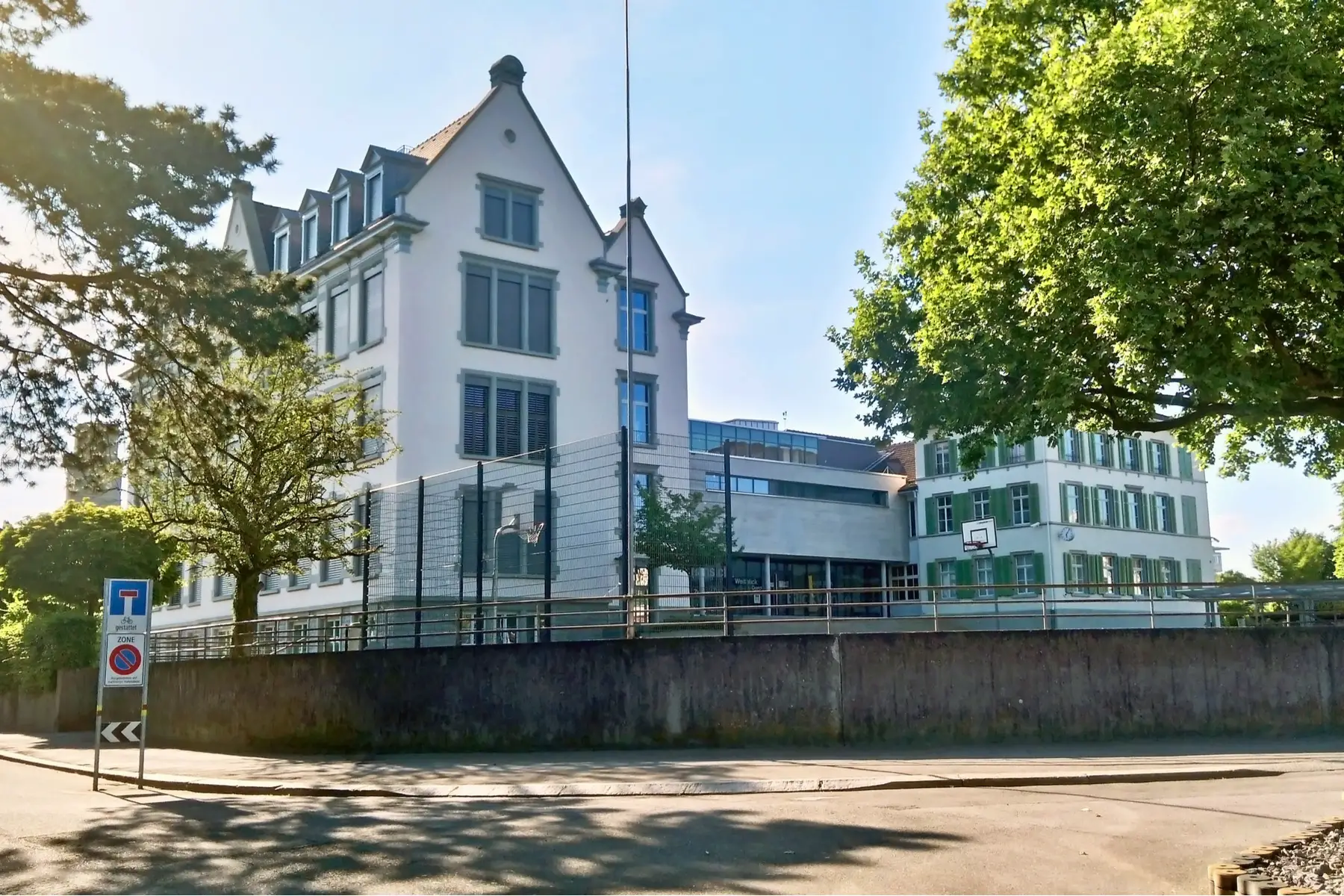
The IB is a two-year course where students have to take certain subjects and then choose optional classes. In total, students take six subjects – three at a higher (more intensive) level, and two at a standard (lesser) level. In addition, students must take a math, English, and science class. However, they can choose which level of math and English they take, along with which science.
Additionally, they can opt for three more subjects, which could be history, geography, art, music, religion, another language, or more. As well as their subjects, students also have to take a philosophy class called Theory of Knowledge. They must also write a 4,000-word Extended Essay and participate in 50 hours (each) of creativity, action, and service (CAS). Conveniently, the IB can be done entirely in English or French, or as a bilingual diploma.
Graduating in Switzerland
Like in every other country, having some sort of high school diploma is a prerequisite for going to a university in Switzerland. Because of this, students in the public Swiss education system receive a Matura upon graduating. This is the federal high school graduate diploma.
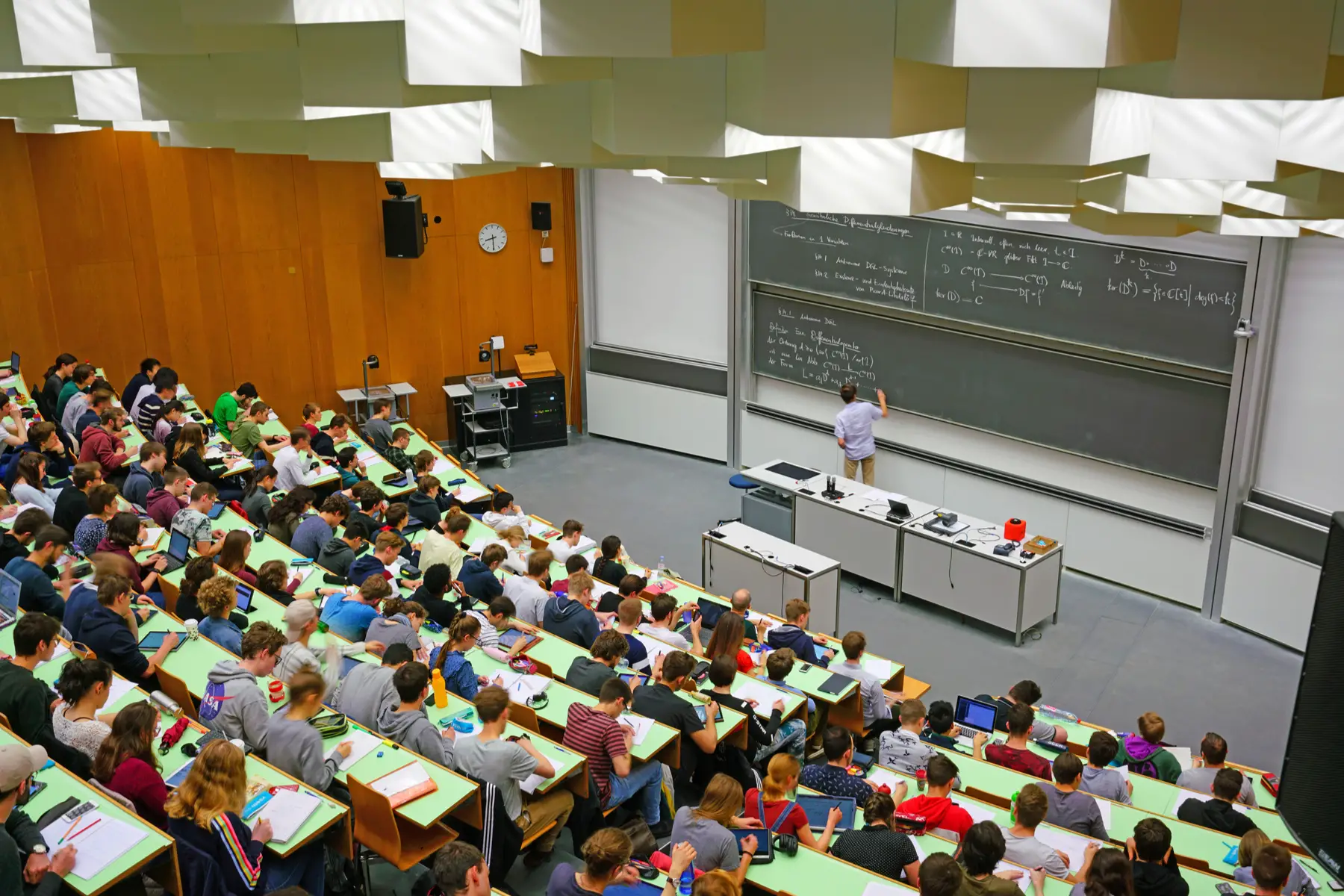
Students in a private school, however, may have different qualifications. For example, the IB Program is very popular at private schools in Switzerland, and therefore, most students in private schools graduate with this diploma. Other schools, however, may offer different qualifications. For example, the British schools might offer A-Levels, while French schools might offer the French Baccalaureate. Nevertheless, all high-school graduates will have the qualifications they need to attend university.
Financial aid and scholarships
Because public education is free in Switzerland, there is usually no financial aid or scholarships available for schooling. That said, depending on their income, parents may be able to receive discounts on daycare or after-school care.
The private schools are, of course, different. Because of their exceedingly high fees, some private and international schools offer scholarships. For example, the Le Rosey Foundation offers some scholarships to “particularly brilliant students” so that they may study at the prestigious Le Rosay boarding school. However, these scholarships are hard to come by, so you will have to do your research if you want to try and get one. Fortunately, though, many private schools offer a more easily accessible form of financial aid.
Although school fees may sometimes be a little less if you pay for the full year upfront, many schools in Switzerland offer payment plans so that parents can split up the year’s fees and make payments at various points throughout the year.
Educational support for expat students in Switzerland
Generally speaking, language is the biggest hurdle for expat children entering the Swiss education system. This is because public school classes are in the canton’s dominant language. As such, they may be in German, French, Italian, or Romansh. Furthermore, although students also learn a second Swiss language – and English – the primary language of instruction may not be one that your child is familiar with.
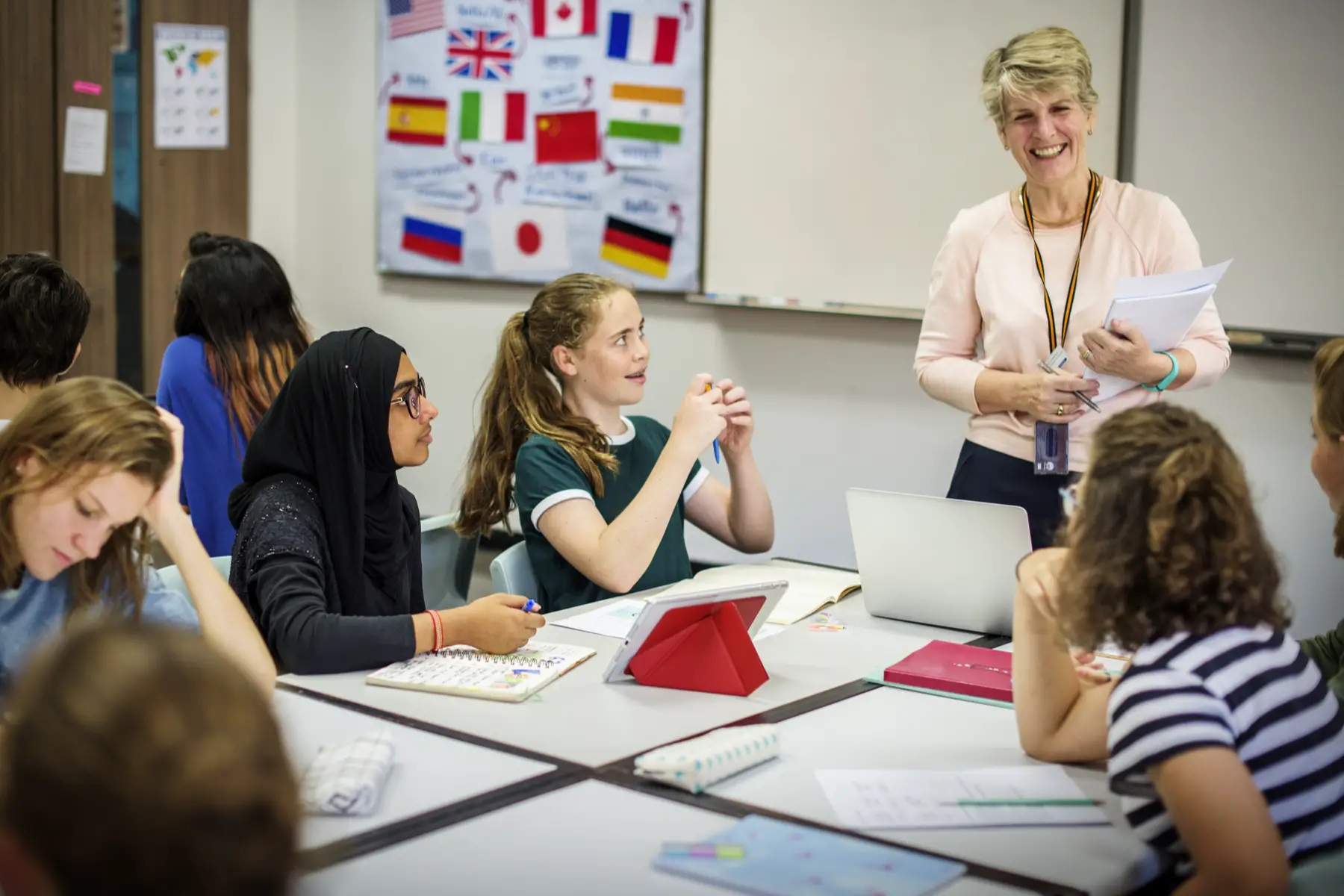
During the enrollment process, a public school will assess your child’s abilities in the local language. If their skills will prevent them from keeping up with their classes, many schools offer induction or intensive language classes. These will help your child quickly improve their language skills so that they can join regular classes. However, because this is within the public education system, which is free, you usually won’t have to pay for them.
The public education system in Switzerland also provides support for students with special education needs. Therefore, students with behavioral, learning, or other difficulties can often still attend state schools and get the help they need to learn effectively.
Support for children with special educational needs in Switzerland
Legally, Switzerland’s education system has to provide for children with special education needs (SEN). As such, special needs students in primary school have a right to schooling and support from specialists.
Children with special needs have a variety of options for primary school education. They can integrate into a mainstream school with extra educational support, receive special needs classes at a mainstream school, or attend a school catered solely for children with disabilities.
Even though Switzerland has an inclusive educational approach to support children with disabilities and learning difficulties, inclusivity varies among the cantons. We recommend you contact the school directly, before enrolling your child, to find out what SEN programs if any, they offer.
Almost 5% of school children in Switzerland have special educational needs (SEN). There are different types of special needs schooling on offer, such as:
- Early childhood: support at home
- Integrative: children integrated into mainstream schools with extra measures to support their education
- Special needs classes: a separate class at a mainstream school for a limited number of students with special educational needs (SEN)
- Special needs schools: catering solely to children with disabilities and learning challenges, primarily located in the bigger cities
Other support services include language and psychomotor therapy.
For more information, you can contact your canton’s education department.
Changing schools in Switzerland
Although it is possible to change schools in Switzerland, it can be tricky. This is because each canton has its own education system and schools within each canton can offer different curricula. Furthermore, even the language of instruction might change, for example, from French to German. Nevertheless, it is possible to change schools, and there should not be any restrictions about when or where you do this.
Chances for parental involvement in schooling in Switzerland
Like in other countries, the education system in Switzerland has opportunities for parents to get involved in their children’s schooling. For example, most schools have some sort of Parent-Teacher Association (PTA). In addition, some schools have class parents or require parent chaperones for school trips and events. Most private and international schools also have a Board of Governors, which parents can sometimes join.
Homeschooling in Switzerland
Because of Switzerland’s robust education system, homeschooling is not common in the country. Furthermore, each canton has its own laws regarding homeschooling and only some allow it.
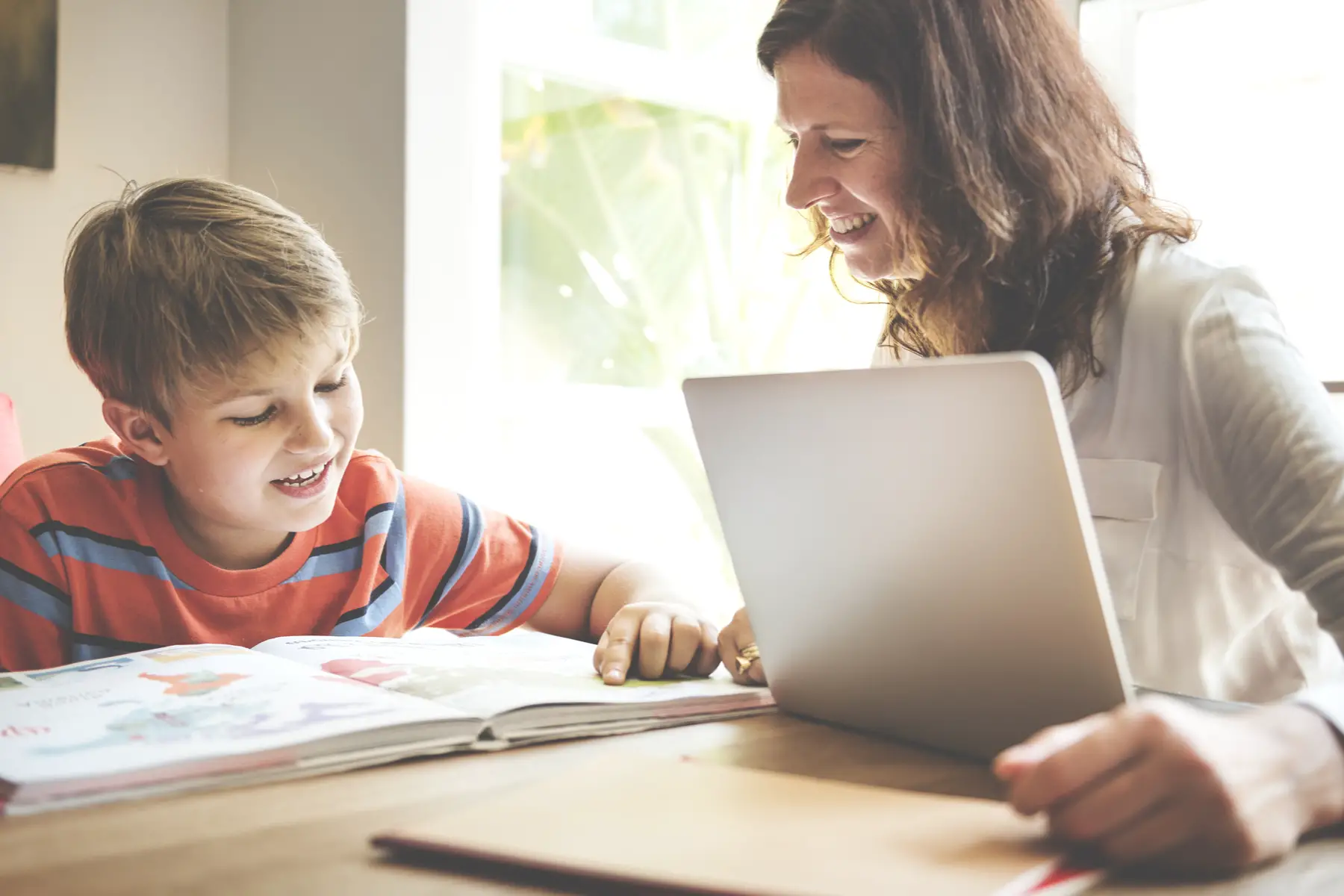
If, however, your canton does allow homeschooling, you have to register annually, notify the local education department, and work within their guidelines. You can find more information from your canton’s education department and the Home School Association of Switzerland.
Useful resources
- State Secretariat for Education, Research and Innovation (SERI) – the federal body that oversees education in Switzerland
- Swiss Conference of Cantonal Ministers of Education (EDK) – provides details of the different cantonal education departments in Switzerland
- Home School Association of Switzerland – find more practical information about homeschooling your child in Switzerland
